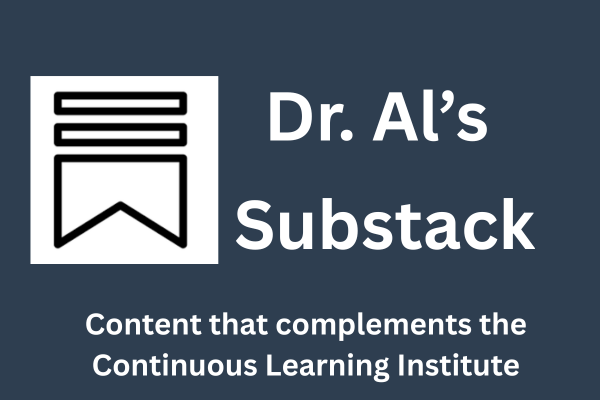Student Success & Equity in Math with Michael Wangler

LISTEN TO THE EPISODE:
Learn how a college significantly improved equitable outcomes in math.
In this episode, I interview Michael Wangler, veteran community college educator and former dean at Citrus College where transformational change in math resulted in positive student outcomes.
(Scroll down to access the transcript.)
We discuss the following topics:
9:49:23: The "Why": The data that clearly showed faculty things had to change.



The progression studies below showed that a small number of students, often in the single digits, progressed through the math sequence.



21:44:11: Starting with the coalition of the willing.
27:14:22: Growing incrementally, creating six math pathways, & making significant pedagogical changes.
BEFORE:

AFTER:
34:39:01: Outcomes as a result of positive changes.
See outcomes UPDATE.
41:24:20: Inheriting practices that harm students.
43:32:08: Key ingredient to success: an ongoing community of practice among math faculty that meets bi-weekly (initially weekly).
49:58:09: Why it's critical for students to take math and English in their first year.
Other resources:
Research
Solving for Equity in Practice: New Insights on Advancing College Math Opportunity and Success
College-Level Statistics with Corequisite Supports Best Option for Students
Math faculty Sophia Lee's webinar:
An Equity Strategy To Improve Outcomes
From this:

To this:


Adaptation to an online environment:

Select Mr. Wangler quotes:
"We conducted many internal studies prior to development education reform bill AB705. One found that the self-reported high school GPA was pretty darn close to what was on the transcript. Also, out of 1,280 student who took the placement exam, only 3 placed into Calculus I. With self-reported high school GPA, which we had already validated to be legitimate because we compared it with their actual transcripts, we placed 149 students into Calculus I. These are students who took calculus in high school who would have otherwise been placed two or three levels below transfer-level math using the placement test. They ended up doing well and many of them went to Calculus II. This showed the faculty what was possible."
"We did progression studies. We looked at students who started three levels below transfer math...and only 4% of the original cohort made it to transfer level math, and that's with roughly 70% course success rates. And maybe just one student would make it to Calculus II from the original cohort, if you're lucky. That was eye-opening for the faculty as well."
"When we put students at transfer level directly, the success rate might not be quite as good. The success rate was 65% initially [70% prior to changes], but they're actually in a transfer-level class to start with, so now you're getting 65% of the students through in the first try."
"The faculty were not quite ready to get rid of that one level below transfer course at that point. It was a great first year of experimenting, but we quickly realized that even one level below wasn't going to help the students. Ultimately, we needed to get them at the transfer-level with support."
"Pre-calculus is 8 units. Yeah, 8 units is big, but it eliminated five pre-requisites where students were accumulating 20 units of basic skills and most not getting through the sequence. Students love the 8 unit class. They flock to it. We more than doubled Latinx student completions."
About Michael Wangler
Michael Wangler has over 20 years of leadership experience in community colleges, both as a faculty member and academic administrator. Since 2017 he has served as an academic dean at Citrus College, where he spearheaded major developmental educational reforms in mathematics that led to significant increases in success and completion rates in transfer-level math, while also narrowing equity gaps among first generation and low-income students. He also oversaw Career Education at the college, where he developed an integrated pathways model that links adult education, noncredit and credit programs to serve the workforce development needs of the community.
Michael began his higher education journey as a student at Grossmont College in San Diego, where he was inspired by the experience to pursue a career as a community college teacher. He earned a BA from UCLA, and a Master’s in Geography & Earth Sciences at UC Riverside. While at UC Riverside, he began teaching at Mt. San Jacinto College and at all 3 campuses within the Riverside Community College District, ultimately serving as a full-time faculty member at Cuyamaca College in San Diego County for 16 years.
Most recently, Michael joined Growing Inland Achievement, a collective impact nonprofit focused on improving higher educational attainment rates in the Inland Empire region of Southern California. He provides institutional support where he works directly with the region’s K-16 partners to help institutions identify and implement promising practices for improving educational outcomes.
About Dr. Al Solano
Al is Founder & Coach at the Continuous Learning Institute. A big believer in kindness, he helps institutions of higher education to plan and implement homegrown practices that get results for students by coaching them through a process based on what he calls the "Three Cs": Clarity, Coherence, Consensus. In addition, his bite-sized, practitioner-based articles on student success strategies, institutional planning & implementation, and educational leadership are implemented at institutions across the country. He has worked directly with over 50 colleges and universities and has trained well over 5,000 educators. He has coached colleges for over a decade, worked at two community colleges, and began his education career in K12. He earned a doctorate in education from UCLA, and is a proud community college student who transferred to Cornell University.







